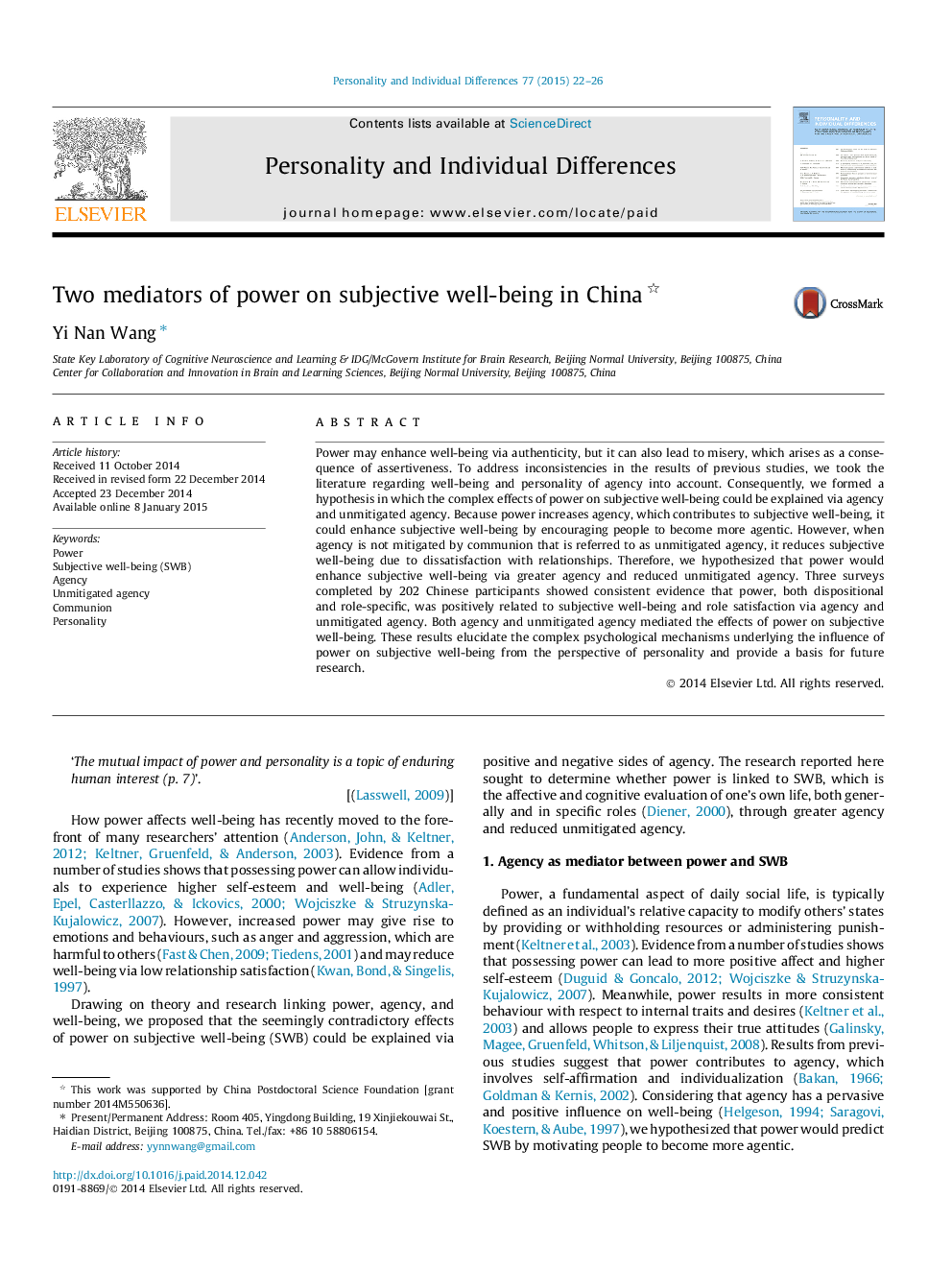| Article ID | Journal | Published Year | Pages | File Type |
|---|---|---|---|---|
| 890202 | Personality and Individual Differences | 2015 | 5 Pages |
•The study investigated how power enhanced subjective well-being (SWB).•Power, agency, and unmitigated agency all correlated with SWB.•Both agency and unmitigated agency mediated the effects of power on SWB.
Power may enhance well-being via authenticity, but it can also lead to misery, which arises as a consequence of assertiveness. To address inconsistencies in the results of previous studies, we took the literature regarding well-being and personality of agency into account. Consequently, we formed a hypothesis in which the complex effects of power on subjective well-being could be explained via agency and unmitigated agency. Because power increases agency, which contributes to subjective well-being, it could enhance subjective well-being by encouraging people to become more agentic. However, when agency is not mitigated by communion that is referred to as unmitigated agency, it reduces subjective well-being due to dissatisfaction with relationships. Therefore, we hypothesized that power would enhance subjective well-being via greater agency and reduced unmitigated agency. Three surveys completed by 202 Chinese participants showed consistent evidence that power, both dispositional and role-specific, was positively related to subjective well-being and role satisfaction via agency and unmitigated agency. Both agency and unmitigated agency mediated the effects of power on subjective well-being. These results elucidate the complex psychological mechanisms underlying the influence of power on subjective well-being from the perspective of personality and provide a basis for future research.
